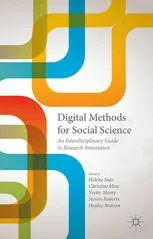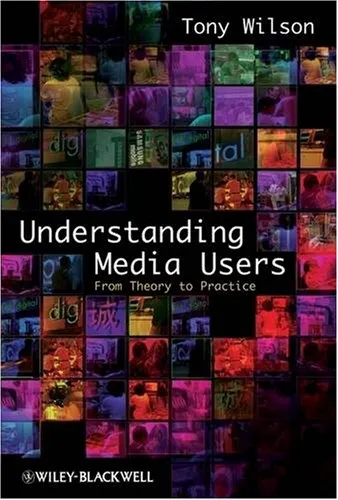Digital Methods for Social Science: An Interdisciplinary Guide to Research Innovation
4.9
Reviews from our users

You Can Ask your questions from this book's AI after Login
Each download or ask from book AI costs 2 points. To earn more free points, please visit the Points Guide Page and complete some valuable actions.Related Refrences:
Analytical Summary
In the ever-evolving landscape of academic inquiry, Digital Methods for Social Science: An Interdisciplinary Guide to Research Innovation stands as a pivotal contribution that bridges technological advancements with rigorous social science methodologies. Edited by Helene Snee, Christine Hine, Yvette Morey, Steven Roberts, and Hayley Watson, this volume offers a rich, balanced framework for understanding how digital tools can be integrated effectively into scholarly practice.
The book takes a distinctly interdisciplinary stance, bringing together perspectives from sociology, anthropology, media studies, and beyond. Each chapter engages with real-world research dilemmas, illustrating the possibilities, constraints, and ethical considerations of deploying digital research methodologies. This approach ensures the work remains both theoretically robust and practically accessible for academics, professionals, and graduate students.
Through detailed case studies and methodological critiques, the editors and contributors address the full research lifecycle — from conceptualization and data collection to analysis and dissemination — in digitally mediated environments. Readers will encounter discussions on online ethnography, social media analysis, visual and textual analytics, as well as emerging hybrid methods that reflect the dynamism of contemporary social research.
Key Takeaways
The value of Digital Methods for Social Science: An Interdisciplinary Guide to Research Innovation lies in its ability to synthesize diverse methodological insights into actionable guidance for the digital era.
Firstly, the book underscores that digital research methodologies are not merely technical tools but embedded within theoretical and ethical frameworks that must be critically examined. Secondly, it highlights the necessity of interdisciplinarity, showing how cross-pollination between fields fosters richer analytical outcomes. Thirdly, it emphasizes methodological adaptability, encouraging researchers to evolve techniques alongside technological change.
Finally, readers are reminded of the importance of reflexivity — the continual self-assessment of one’s position, methods, and impact within a constantly shifting digital research landscape.
Memorable Quotes
Digital methods demand as much critical scrutiny as traditional approaches; their novelty does not exempt them from rigorous evaluation. Unknown
Interdisciplinary collaboration is not optional in the digital age — it is the foundation of meaningful, transformative research. Unknown
Ethical considerations in digital research are not peripheral; they are central to the integrity of every project. Unknown
Why This Book Matters
In academic and professional contexts increasingly influenced by digital technologies, this work functions as both guide and critical mirror.
It matters because it provides structured, evidence-based approaches to integrating digital tools in social science research without losing sight of theoretical depth and ethical responsibility. The secondary keywords — digital research methodologies and interdisciplinary social science approaches — are evident throughout, ensuring readers understand the fusion of technical capability with scholarly rigor.
Furthermore, the book advances conversations not only about “how” to do digital research, but also “why” certain methods produce more socially and academically significant results.
Inspiring Conclusion
As digital environments continue to reshape society and scholarship, Digital Methods for Social Science: An Interdisciplinary Guide to Research Innovation empowers researchers to move beyond mere adoption of tools toward thoughtful, impactful integration.
By combining critical analysis, ethical grounding, and practical guidance, the book serves as a valuable springboard for innovative projects, collaborative initiatives, and deeply informed discourse. Whether in academia, policy, or applied professional contexts, readers are encouraged to engage with its insights, share them among colleagues, and discuss how these methods might refine their own digital research practices. Information such as specific awards or accolades is unavailable due to no reliable public source at present — but its intellectual contribution speaks for itself.
Free Direct Download
You Can Download this book after Login
Accessing books through legal platforms and public libraries not only supports the rights of authors and publishers but also contributes to the sustainability of reading culture. Before downloading, please take a moment to consider these options.
Find this book on other platforms:
WorldCat helps you find books in libraries worldwide.
See ratings, reviews, and discussions on Goodreads.
Find and buy rare or used books on AbeBooks.
1249
بازدید4.9
امتیاز50
نظر98%
رضایتReviews:
4.9
Based on 0 users review
"کیفیت چاپ عالی بود، خیلی راضیام"
Questions & Answers
Ask questions about this book or help others by answering
No questions yet. Be the first to ask!



